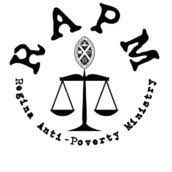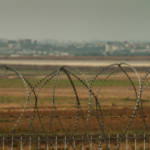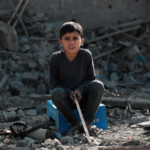PDF version of this action call. Please see also this accompanying letter from the Executive of Living Skies to the province; and this editable Word document for communities of faith and individuals to use as a guide and edit as you wish.
 Your voice is needed!
Your voice is needed!
Regina Anti-Poverty Ministry (RAPM) invites us to take action. What are we concerned about? Much evidence of growing and legislated poverty and homelessness as we move into winter, due to changes in key social assistance programs in SK. This media story offers more detail.
RAPM is a ministry of the United Church of Canada in Living Skies Regional Council, SK. Rooted in God’s radical love, expressed through compassion and action, the Regina Anti-Poverty Ministry advocates and educates with and for those seeking social and economic justice.
The existence of poverty is shameful. To be poor is not!
ACTION INVITATION
Please write to your MLA and to Social Services Minister Lori Carr. If writing a personal letter isn’t something you can do right now, please use this online action, where you can send the text offered, and edit it as you wish. https://www.reginalabour.ca/poverty_free_saskatchewan
Contact information for Minister Carr: ss.minister@gov.sk.ca or 306-787-3661.
Who is your MLA? Find out here. Then, follow the link, or find contact information for each MLA here.
In addition, consider using the information below to write a letter to the editor, call in to radio shows, and inform social media posts, comments, and tweets. Respectful public pressure is also needed! But please prioritize writing to government first. Read on for full information!
Specific asks re the SIS program
Please make sure your letter covers one or more of these.
- Provide SIS recipients with full coverage of basic utilities.
- Stop the clawback of the Saskatchewan Rental Supplement to SIS recipients.
- Also stop the clawback of damage deposits and small gifts of money.
- Provide SIS recipients with the option of having their rent paid directly to their landlord and their utility bills paid directly to the utility providers.
- Raise the SIS rate by $300 a month as a first step toward raising it above the poverty line.
- Set income support rates on the basis of the cost of living.
TALKING POINTS FOR LETTERS
Here are some background points to select from for your letter, and to use in conversations. The points are many; please choose what you wish to focus on and avoid duplication in the letters. You could simply express your outrage over even one aspect of the SIS program. If you’re commenting on social media, having just one key point is also helpful.
Background
- On September 1 2021, the Saskatchewan Income Support (SIS) program replaced both the Social Assistance Program (SAP) and the Transitional Employment Allowance (TEA). The result is a reduction in benefits that were already grossly inadequate.
- Examples of reduction in benefits under SIS: ●SAP provided the actual cost of basic utilities. Under SIS, utility coverage is wrapped into an already inadequate shelter allowance. ●Under SIS, there is little potential for extra or special needs, such as school supplies, additional clothing grants, or emergency furniture or moving allowances, as were available under SAP. Such benefits have been scrapped. ●SIS recipients who receive the Saskatchewan Rental Housing Supplement have it clawed back. This was not the case under SAP. ●Unlike SAP, under SIS damage deposits are clawed back. ●SAP allowed an annual $200 gift exemption. SIS claws back any gifts of money.
- Under SIS, a single person living in Regina will receive $575 a month for rent and utilities—which is well below what it takes just to rent a place. And they’ll receive $285 as a basic allowance to cover everything else—food, clothing, personal and household items, transportation: everything that is not rent or utility based. That makes a total of $860.
- According to Stats Canada, the poverty line for a single person living in Regina is approximately $22,500 a year. A person on SIS gets $10,320 a year, less than half that amount. For people in rural areas, the amounts given are even less, even though rural areas are generally no cheaper to live in overall.
- SIS is legislated poverty! Could you live on $860 a month?
Further details about SIS
- SIS is now the primary income support program. It is incredibly inadequate and doesn’t even meet people’s shelter-needs costs. What is the government’s rationale for making it so? The government claims that SIS “focuses on helping people overcome challenges, earn more income, become more self-sufficient, and start a career.” Before talking about challenges and self-sufficiency, members of the government should try to live on SIS. As they would discover, it is impossible to do so.
- The real explanation for the inadequacies (or meanness) of the SIS program is likely to be short-term cost savings for the government.
- Under SIS, a family of two parents with one or two children in Regina will receive a total of $1545 per month, to cover rent and all other expenses.
- According to Stats Canada, the poverty line for a family of four living in Regina is approximately $44,833. A family on SIS gets $20,700 a year, less than half that amount.
- Under SIS, a single person in Regina will receive $575 for rent and utilities. According to the Canadian Mortgage and Housing Corporation, the average rent for a bachelor suite in Regina is $757. For a one bedroom apartment it is $949.
- Under SIS, a family with one or two children in Regina will receive $975 for rent and utilities. According to the Canadian Mortgage and Housing Corporation, the average rent for a two bedroom apartment is $1,332. The rent and utilities allowance is capped at $1,150 whether you have three children or seven children.
- Another problematic difference between SIS and SAP: Under SAP, recipients had the option of Social Services paying their utility bills directly to the utility providers. This option is not available under SIS. Hence many SIS recipients are at risk of having their electricity and heat cut off.
- Yet another problematic difference between SIS and SAP: Under SAP, recipients had the option of Social Services paying their rent directly to their landlord. This option is not available under SIS. According to Ministry of Social Services statement: “Our staff help clients learn to manage their benefits, budget for household expenses and work to make changes in their lives to reach their goals and become self-sufficient to the best of their abilities.”
People living in poverty are the best budgeters ever! They have to be to survive! But when there is not enough to pay all the bills, much less to cover emergencies, it is an advantage to people on Income Assistance to have the option of having the rent paid directly to the landlord. And how can you be self-sufficient if your basic needs are not being met?
The bigger picture in SK and beyond
- Poverty costs. It is very expensive. For example, according to the World Health Organization, poverty is the single largest determinant of health. Thus poverty places a huge burden, not only on the health of people living in poverty, but also on the healthcare system. According to one study, poverty costs Saskatchewan $3.8 billion a year.
As reported in the Leader-Post, October 5 2021: “Cameron Choquette, executive officer of the Saskatchewan Landlord Association, said 31 percent of income assistance renters province wide had not paid any rent for the month of September. Another 18 percent had only paid a portion of rent.”
“On average, chronic non-payment of rent is rather small across the whole industry,” said Choquette, noting arrears ordinarily occur in two to six percent of tenants…. “This SIS program is not working in Saskatchewan,” said Choquette….It’s increased homelessness.”
For the full article, click here.
- Winter is coming. More and more people are becoming homeless. Homelessness is a growing problem in Regina and across the province. More and more people are sleeping in parks and alleys and church doorways. SIS is a major factor in the increase in homelessness. SIS is now the prime income support program. It is incredibly inadequate and doesn’t meet people’s basic shelter-need costs. It has already led to a significant number of evictions. SIS has made it very difficult for people to gain and maintain stable housing.
- In 2020, many Canadians received the Canada Emergency Response Benefit (CERB) of $2,000 a month from the federal government to supplement their income during the Covid pandemic. This was a very good thing. By comparison, people on SIS received a one-time payment of $50 from the provincial government to help deal with Covid challenges. If they applied for and got CERB, the provincial government clawed it back out of their income support payments.
- According to a recent study, it would cost $547 million to raise everyone in Saskatchewan above the poverty line. Though is sounds like a lot, $547 million is less than 1% of the provincial GDP. As a rich province in a wealthy country, Saskatchewan can afford to eliminate poverty. Besides, it would cost much less to eliminate poverty than to maintain the status quo. According to one study, poverty costs Saskatchewan $3.8 billion a year.
- Eliminating poverty and homelessness is our collective responsibility. It is to our collective shame that they exist in our community. We must force the various levels of government to act to end homelessness and poverty.
- The United Church of Canada has long supported both a Guaranteed Livable Income (GLI) and more immediate anti-poverty measures, believing that poverty is neither God’s will nor God’s desire for any person or any community. Inequitable and unjust human sharing of God’s resources are direct causes of poverty, and as such are not inevitable and can be changed. This belief is much bigger than any one political party or agenda.





